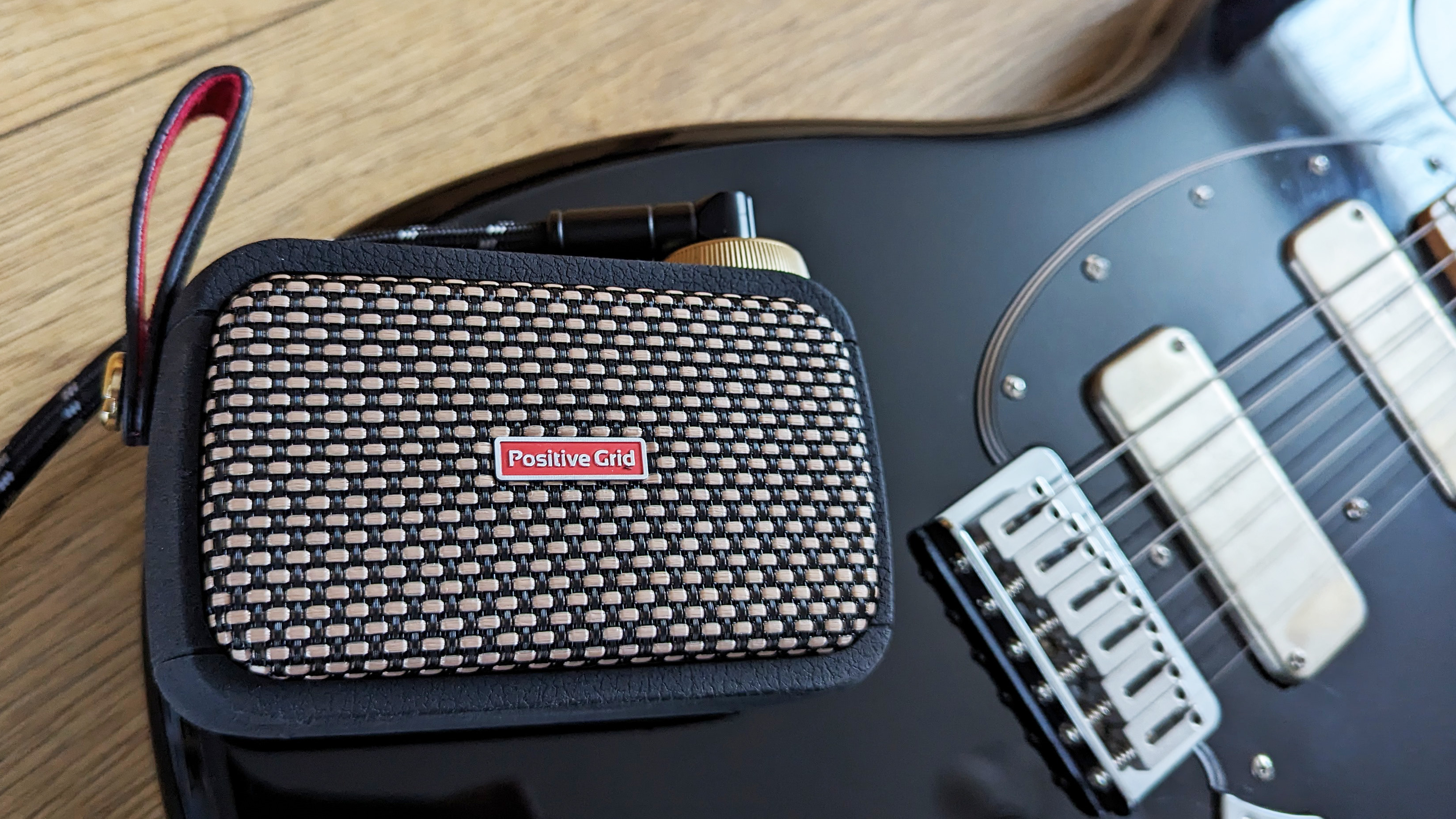
Ahead of its launch and preorder opening with a special price. Positive Grid sent us a sample version of its newly-announced Spark GO amp; the smallest Spark yet by far but still packing a lot of the features that have made the Spark 40 and Spark Mini such a hit with players looking for a modelling practice amp with great app integration. This is what we learned.
1. It will change how you use an amp at home and away
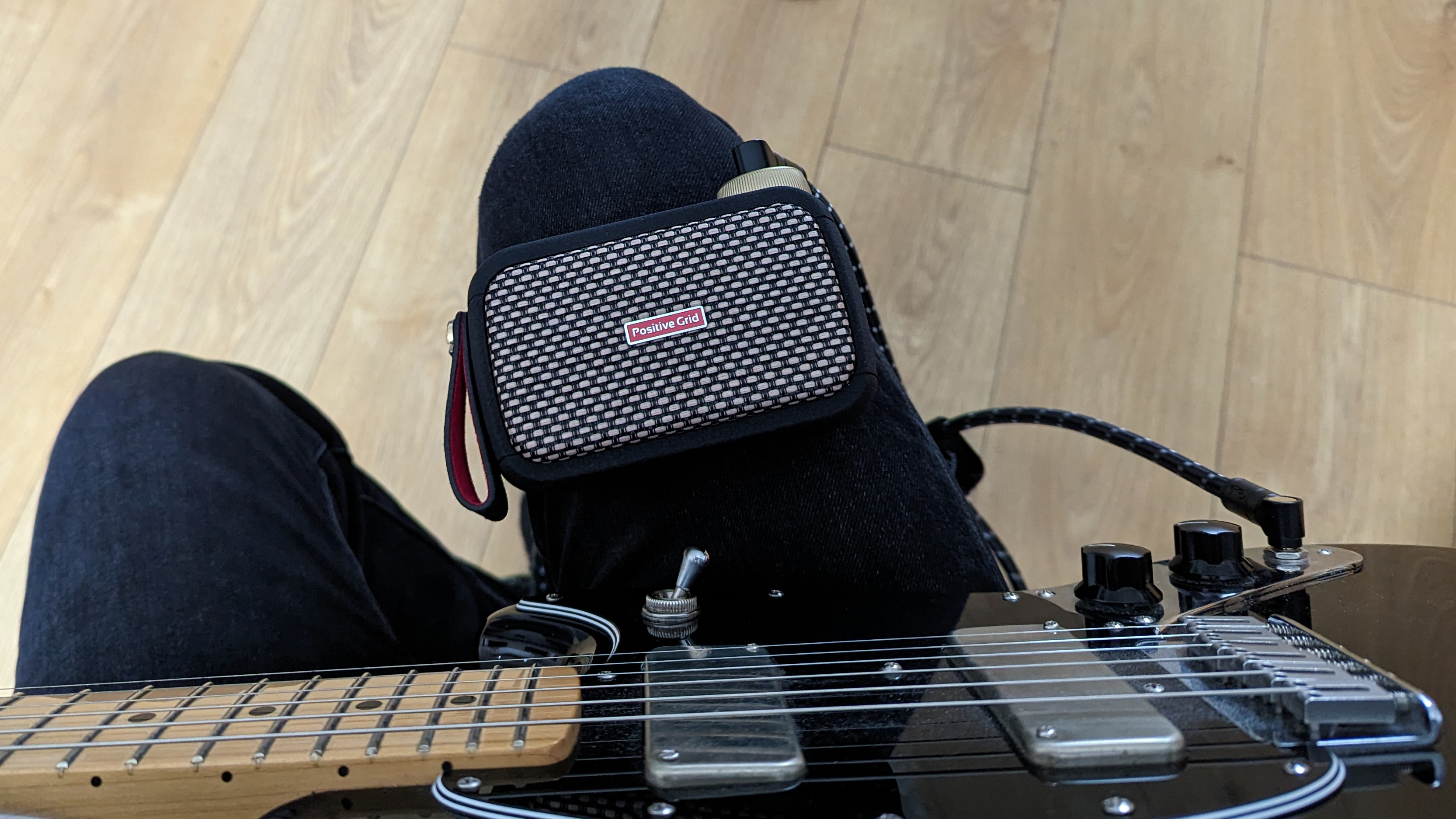
While the rechargeable internal battery of the Spark Mini freed players up to choose where they wanted and needed to play, the GO takes that idea further. Because it's so small and ruggedly built with its grippy rubber casing, it's easy to take with you in a gigbag but it also affected how we used it in the house compared to the Mini and Spark 40. Let us introduce the concept of… the leg amp!
Because of its design we didn't always have to worry about having a table or surface in front of us to sit the Spark GO on – sometimes we'd place the Spark on our leg while playing because you can lay it flat (we'll get to that). We're not sure Positive Grid even has this in mind for use but it soon became second nature to us – and that rubber casing means it doesn't slide around easily.
The fact the Spark GO's speaker is facing up also means you don't have to have the amp over half volume to get decent monitoring. It's really convenient for quick plug-in and play sessions wherever you sit.
2. It's loud enough but also has depths
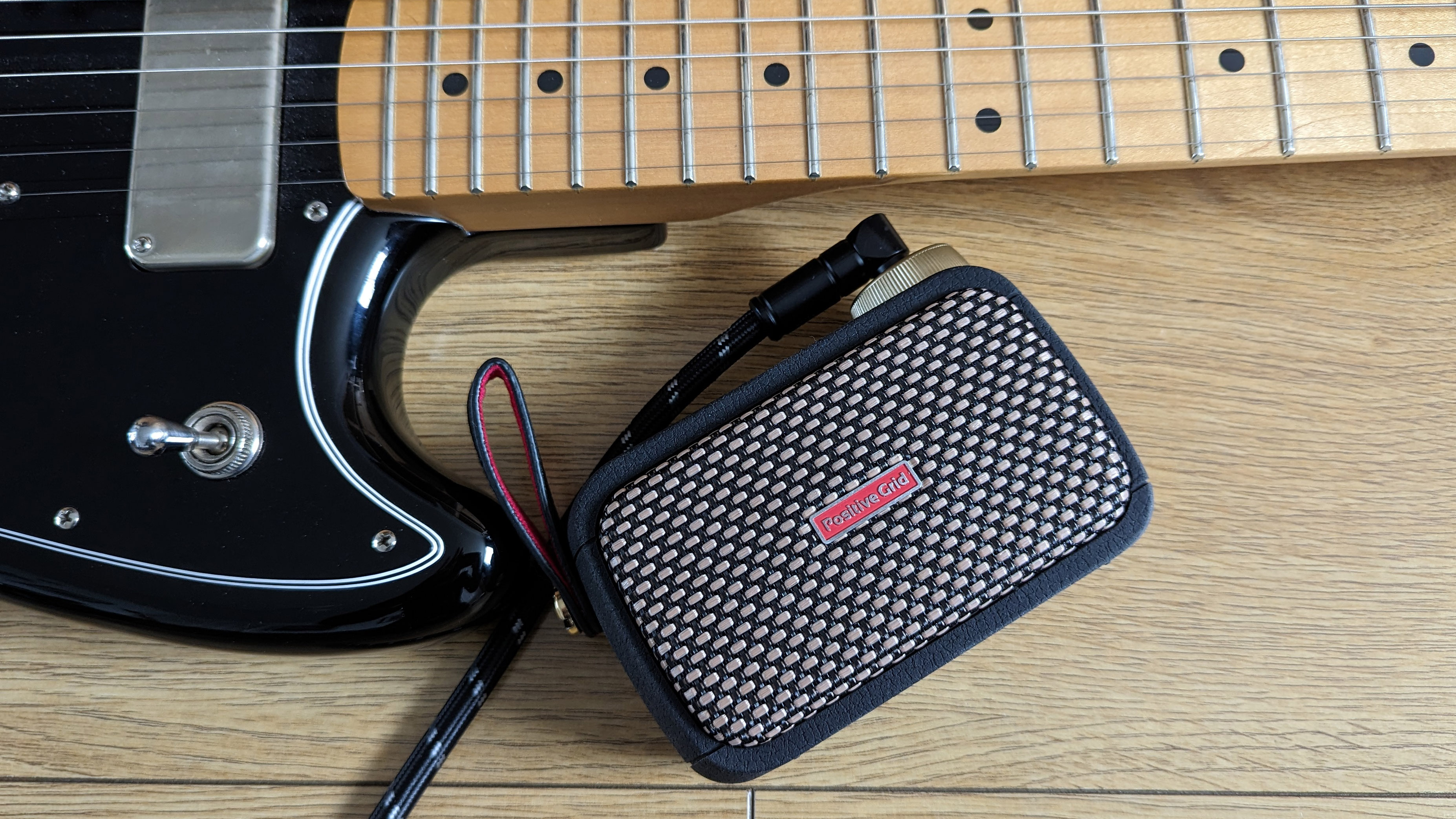
If you're playing alone with a guitar amp at home, how much output do you actually need? The Spark GO is louder that you will expect from a 5-watt modelling amp of its size, and we often didn't feel the need to go beyond the halfway mark on volume in our living room (good news as that will get you around eight hours of battery life from a full charge with a USB-C adapter).
This is the first Spark amp that can be positioned in two distinctly different ways for varying response
Positive Grid's BIAS Tone Engine processing helps it sound more expansive with the same selection of six virtual delay pedals and nine reverbs that the other Spark amps have, along with the same electric, acoustic and bass amps – plus drives, compression, noise gate, EQ and modulation. But Positive Grid has also been extra smart with its already smart amp…
This is the first Spark amp that can be positioned in two distinctly different ways for varying response – upright as you'd expect but also flat on its rear passive radiator speaker. We found the two options are suited to getting the best out of different kinds of tones.
For heavier amps and metal styles we preferred the more direct response of having the Spark GO upright as it made for a tighter sound. But for ambient tones, rock and blues we liked the 'omnidirectional' flat position as it was more expansive and really showed off those reverbs and delays. I think it's a great idea to allow this flexibility for players and reveals surprising depths from such a diddy amp.
3. It's really, really good with headphones
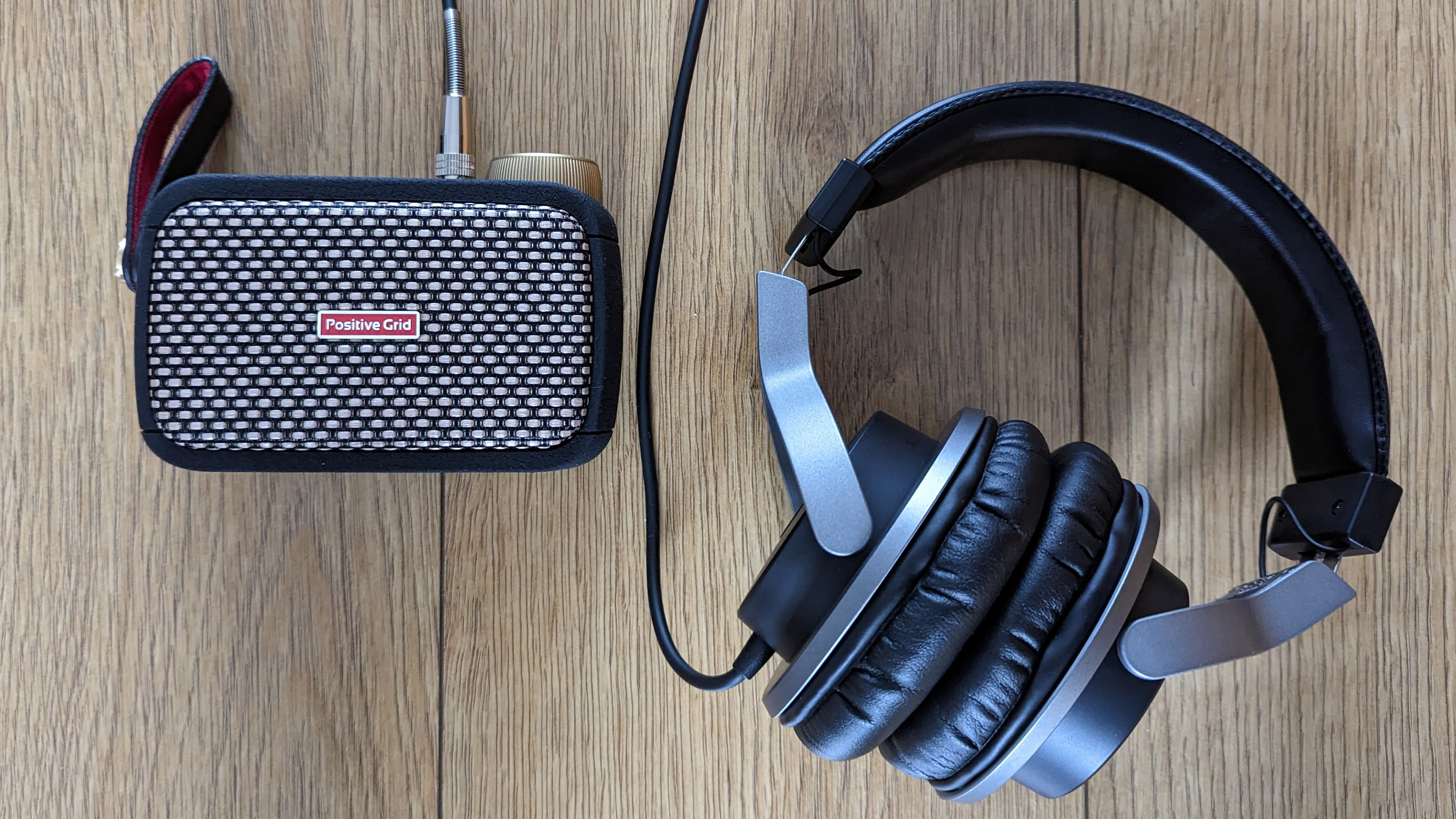
We're going to be completely honest with you here; after trying it side by side with a Spark Mini and Yamaha studio monitor cans, we think the GO is the better headphone experience for silent practice. It's louder, so you probably won't need to crank the amp as much as on the Mini, and I found the GO has less stereo spread and definitely prefer the more direct feel. The playing response is enhanced.
I'll go as far as to say it's the best experience I've had with an affordable amp with headphones – none of that plasticky compression I've experienced with some others. And I'm actually not a fan of playing guitar through headphones but the Spark GO changed me!
Combined with the ease of streaming audio from services like Spotify to play along to – and controlling the volume balance with the onboard controls – the Spark GO is great for learning songs or just having fun with backing tracks.
4. Use the Spark app… or don't
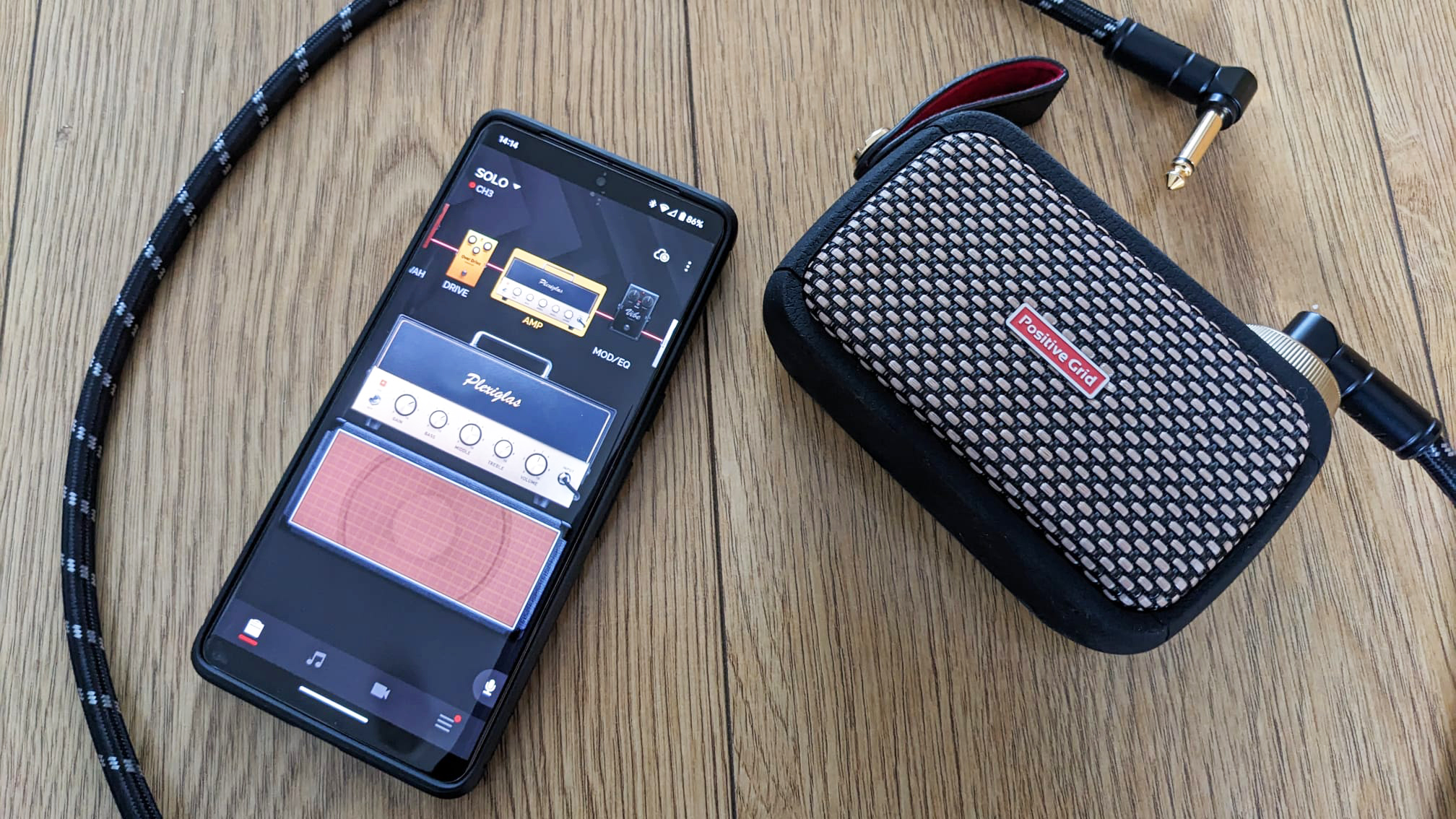
In addition to the same array of models as the other Spark amps, all of the Positive Grid Spark app features are accessible with the GO; it's processed via your smartphone so that's no surprise. But I'm especially pleased to see four presets that can be saved to the hardware itself – just like on the Spark Mini.
App integration is great to have, but I don't always want to have to use my phone to play guitar. The four onboard presets mean that once you have your favourite tones, either using the stock presets that gradually go up in gain, building your own signal chain or downloading them via the massive ToneCloud library accessed with the app, you can enjoy the amp without touching the app.
But if you do you gain a lot; not just the ability to tweak your amp and pedal models, but headline practice and learning features with Smart Jam and Auto Chords to dip into whenever you want. There's a lot going on with this little amp.
Specifications
- Wattage: 5W
- Controls: Preset, Music Volume, Input Volume
- Battery Life: 8 Hours
- Accessories: Carry strap and alternate hardshell grill
- Buy at Positive Grid
- Our pick of the best mini amps for guitar
Want all the hottest music and gear news, reviews, deals, features and more, direct to your inbox? Sign up here.

Rob is the Reviews Editor for GuitarWorld.com and MusicRadar guitars, so spends most of his waking hours (and beyond) thinking about and trying the latest gear while making sure our reviews team is giving you thorough and honest tests of it. He's worked for guitar mags and sites as a writer and editor for nearly 20 years but still winces at the thought of restringing anything with a Floyd Rose.